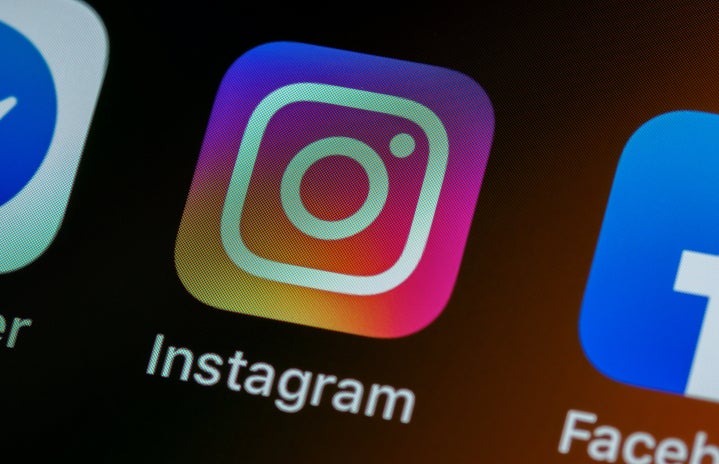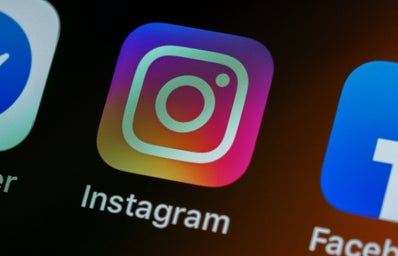From chefs sharing recipes and fashion bloggers uploading OOTDs to regular folk like you and I posting what we got up to last weekend, Instagram clearly has enormous appeal. It’s no wonder that Instagram has 14 million monthly users, with 39% of its users aged 16-24, a considerably higher percentage of younger users than Facebook.
But with people only sharing the positive aspects of their life, is Instagram bad for your self-esteem?
Filtering out the bad
With so many of us being involved with the photo-sharing app, it’s easy to get caught up in the world of social media. Everything looks “perfect” – especially the people. It’s hard to get away from the golden tans, the impeccable physiques, the dreamy couple, the house #goals – the list is endless.
Whilst Instagram can provide inspiration and access to beautiful images, it’s also incredibly hard to avoid comparing your life to what you see on the app. You might think, “she has a better body than me”, or “he has more friends than me”, however you’re forgetting what that person hasn’t posted. You don’t know what’s going on in that person’s life and you don’t know the story behind that image. They may have had a professional photographer take it for them, it may have been Photo-shopped or Facetuned, or they may have had a crappy day but are covering it up with a cheerful post.
Last year, Her Campus reported that an Australian teenager Essena O’Neil, who boasted more than half a million followers, quit the platform, claiming it was “contrived perfection”. She said Instagram was controlling her life, making her obsess over her online popularity and ruining her self esteem. She then edited all her captions to reveal the truth behind the images before deleting her account, for example:
(Photo credit: Instagram)
Don’t compare your behind the scenes to someone else’s highlight reel.
Beware of the body-confidence bloggers
There has been a notable increase lately in the number of Instagrammers who claim to promote so-called “body confidence”. These women, usually “plus-sized” (this can be anything from a UK size 12 up – bear in mind the nation’s average is a size 14) and usually white, feminine and able-bodied tell us to be confident in our skin in the hope of diversifying the fashion industry and promoting self-love.
However some of these women, whilst well-intentioned I’m sure, provide a half-hearted advocacy of body-confidence. As aforementioned, they are often white, attractive, non-disabled and reasonably privileged. Iskra Lawrence (@iskra) for example, has 3.2 million followers and frequently posts images of herself in swimwear or underwear which aren’t retouched. She proudly captions the photos with her slogan: “everyBODY is beautiful”. Yet Iskra still represents normative beauty as she has pale skin, blonde hair, a small waist, a toned stomach and so on. I truly respect her self-confidence and of course, there is nothing wrong with the way she looks. But my point is, this new shoal of bloggers still represent only a small demographic. Her encouragement of body confidence is better than nothing, yes, but does she truly represent a different or exciting figure that we can look to for positive inspiration? Be wary of some so-called “body-confidence” bloggers – brands use them as a way to jump on the self-love bandwagon to sell products, with no real intentions of challenging the industry within which they are firmly a part of.
(Photo Credit: Grabbio)
For true self confidence inspo check out @bodyposipanda, @graciefrancesca, @thenakeddiaries, @blackgirlsrock, @nolatrees and let us know if you would like to share a body positivity Instagram account with us!
Popularity contest
Do you post at a specific time of day because you know it will get more likes? Have you ever posted a selfie, realised something minor was amiss and swiftly deleted it? Do you check your phone every few minutes after posting a photo to keep an eye on the like count? Have you ever texted your mates demanding they like your picture? Most of us avid Insta users are guilty of at least one of these…
Why are we so addicted to social media? Studies have shown that social media can give us a rush of dopamine, the “reward molecule”, the same chemical we experience when we achieve a goal, exercise or feel some other form of satisfaction and pleasure. It is scientifically proven that social media makes us feel good – but it’s a far more fleeting and insignificant source of pleasure than what we can find in the real world. It is not the real you that is being rewarded, but the artificial online persona you showcase to your followers.
(Image: Pinterest)
Remember, comparison is the thief of joy. If you find Instagram is damaging your self-esteem, the solution is simple: delete it.
Can you go 24 hours without social media? Why not give it a go, and see if an Instagram detox alters the way you perceive yourself and the world.


